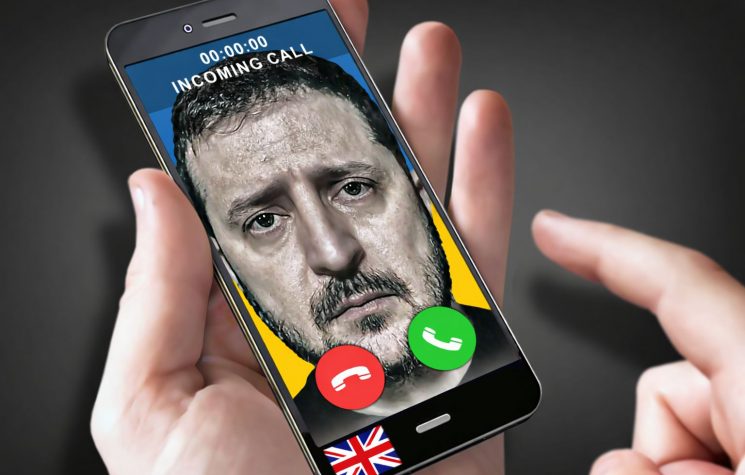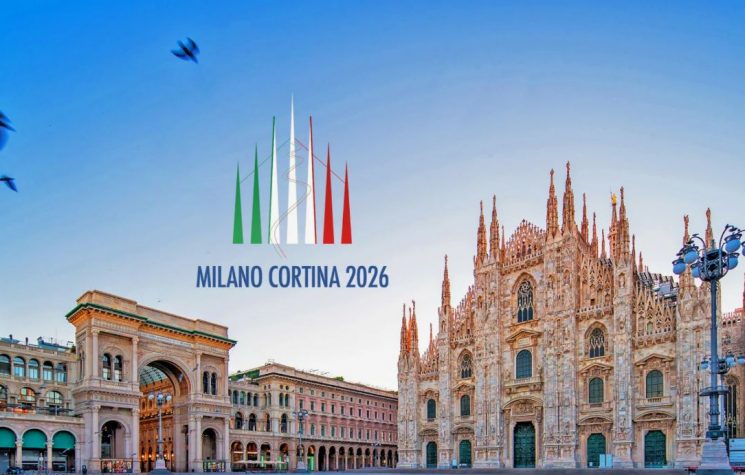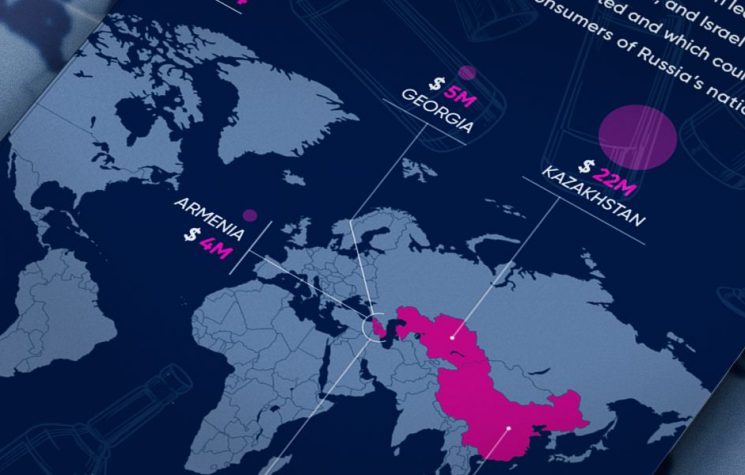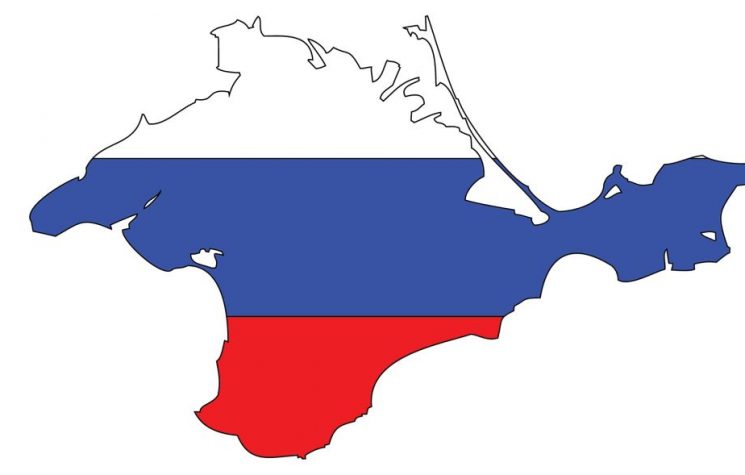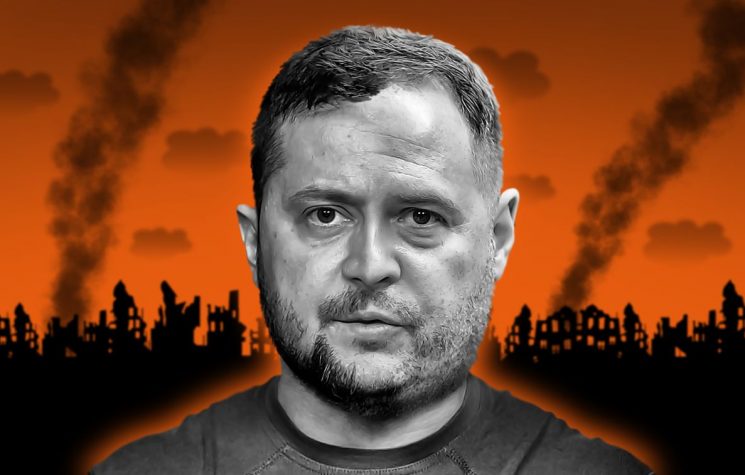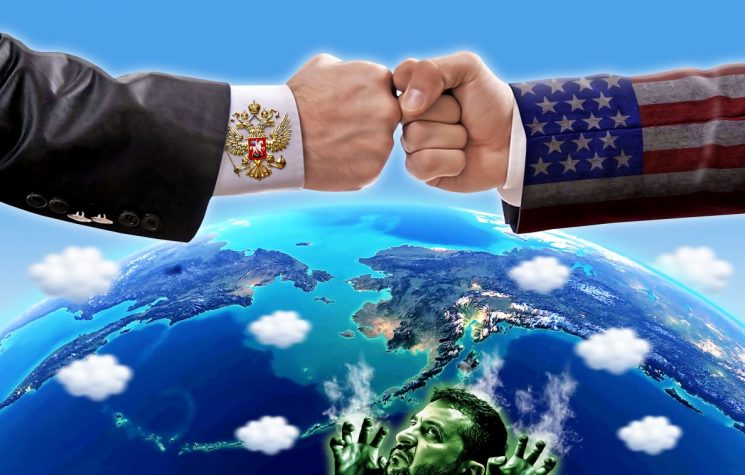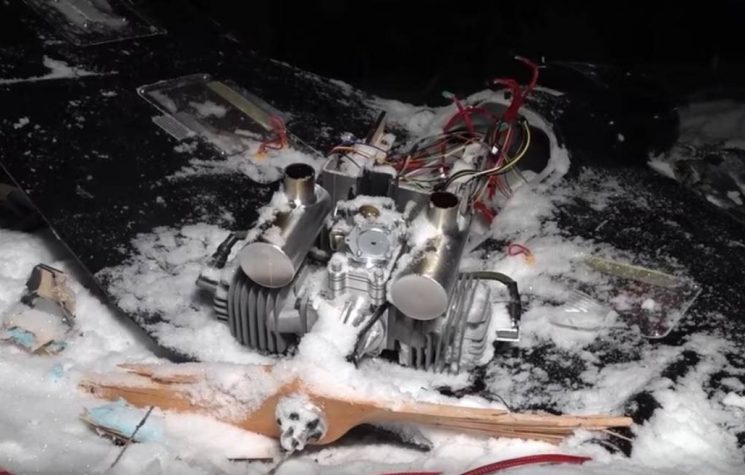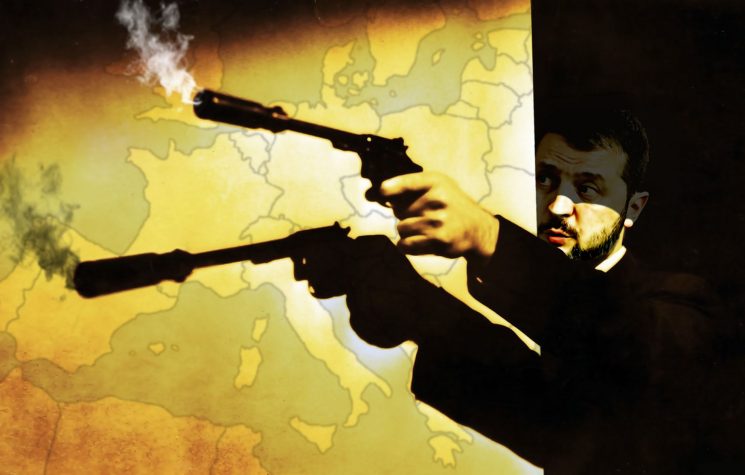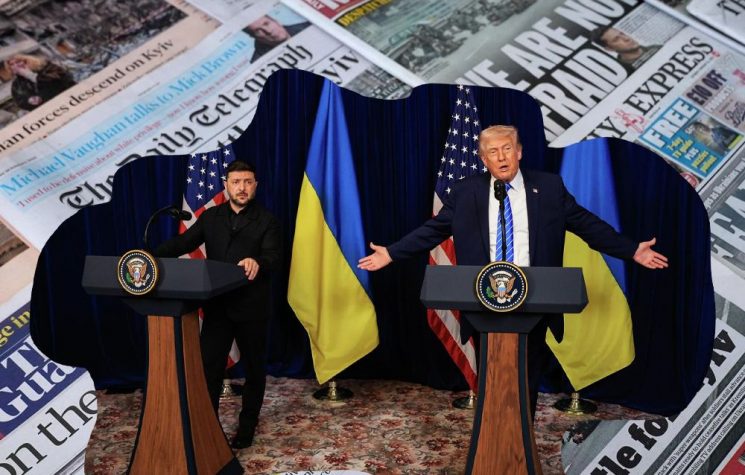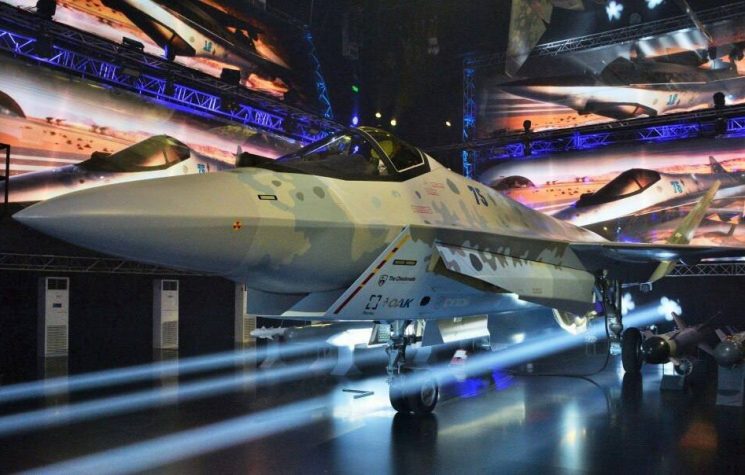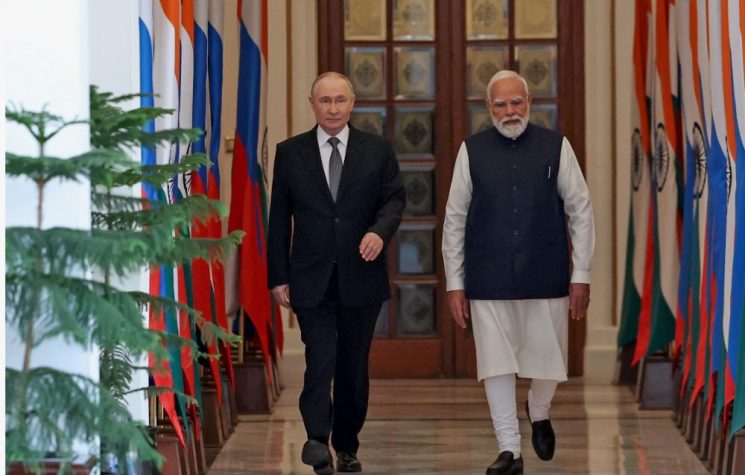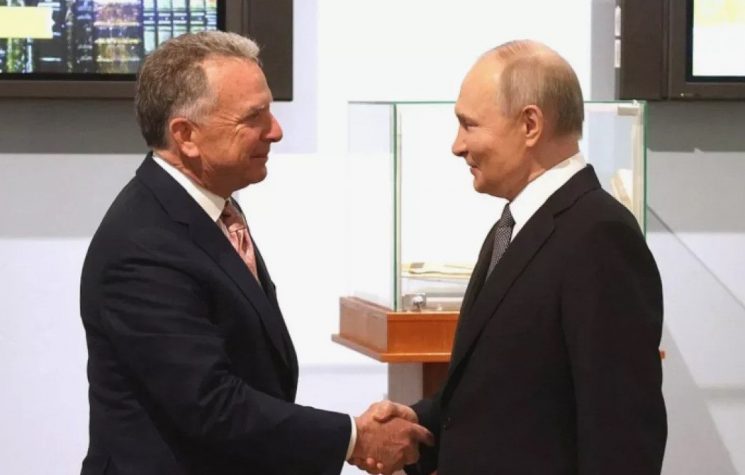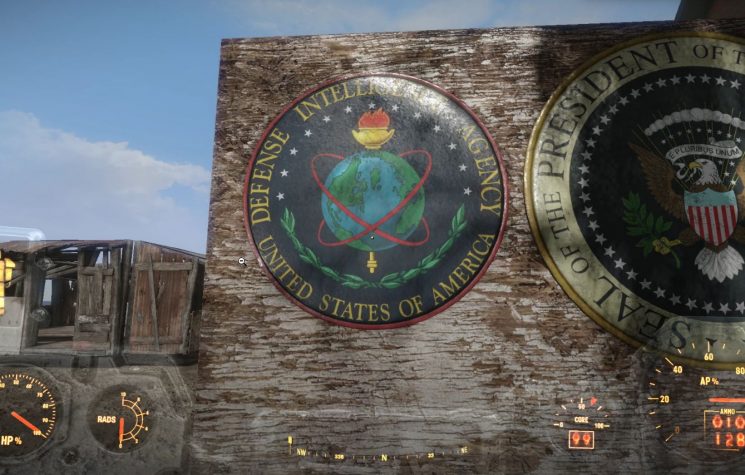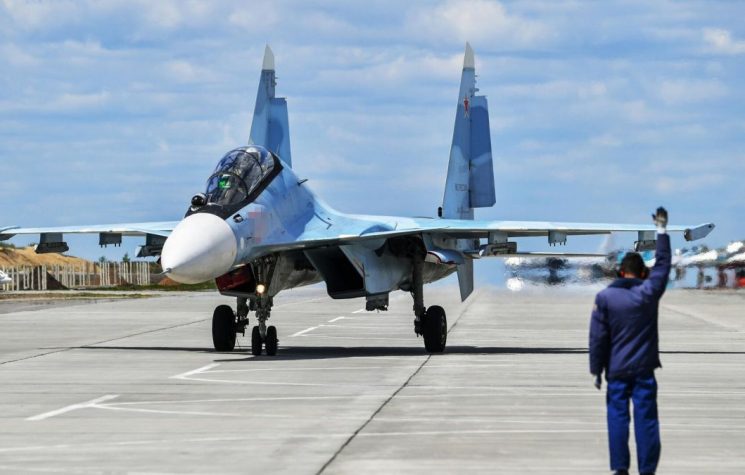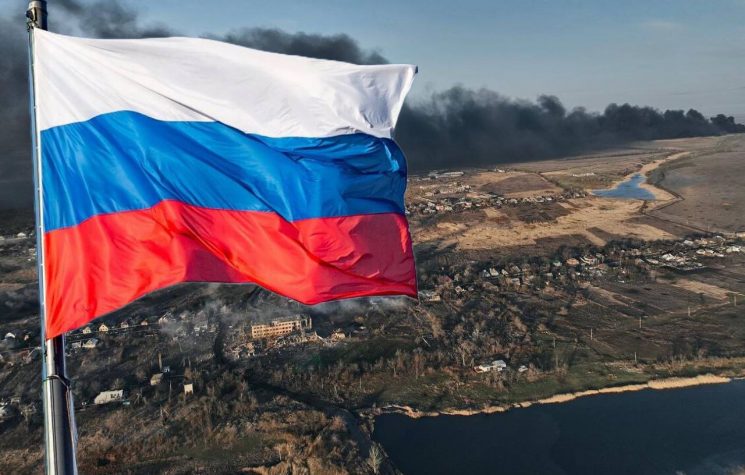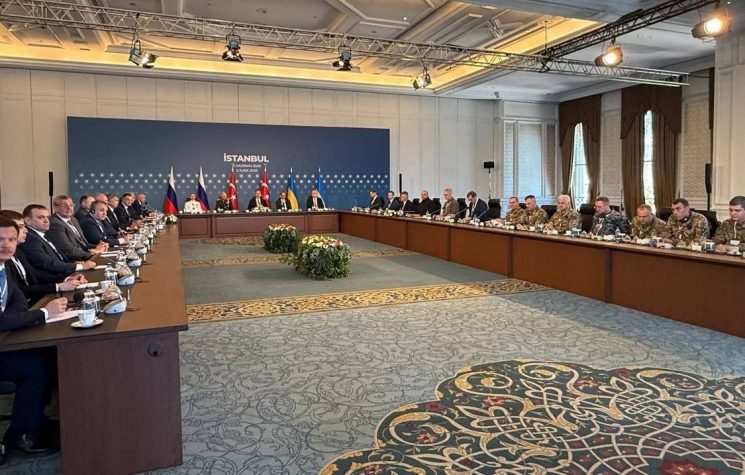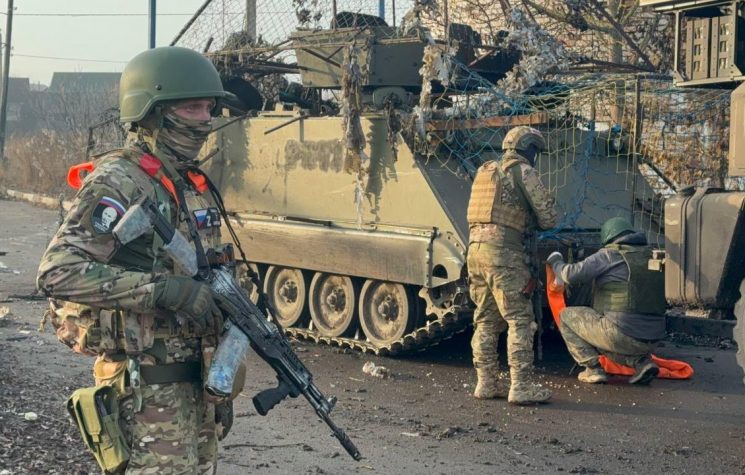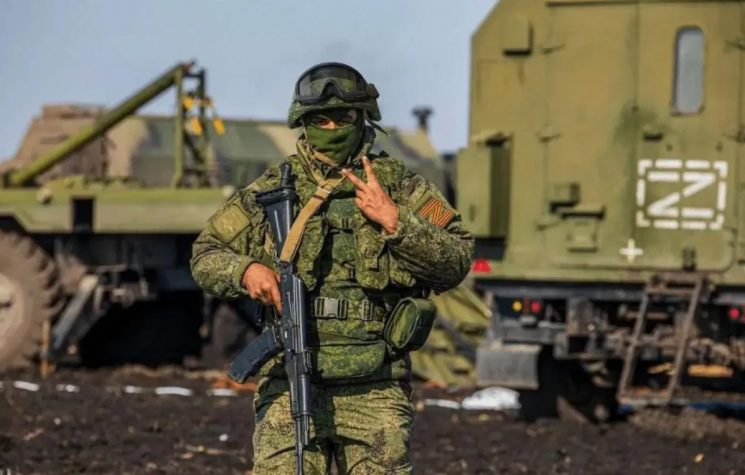I am indebted to Bryan MacDonald for this brilliant neologism: Russophrenia – a condition where the sufferer believes Russia is both about to collapse, and take over the world.
An early example comes from 1992 when the then-Lithuanian Defence Minister called Russia a country “with vague prospects” while at the same time asserting that “in about two years’ time [it] will present a great danger to Europe” (FBIS 22 May 92 p 69). Vague prospects but great danger. Given the vague demographic prospects of his own country, it was a rather ironic assertion given that Lithuania’s future would appear to be a few nursing homes surrounded by forest. But he said it in the days of the full EU/NATO cargo cult. In 2014 U.S. President Obama immortalised this in an interview:
But I do think it’s important to keep perspective. Russia doesn’t make anything. Immigrants aren’t rushing to Moscow in search of opportunity. The life expectancy of the Russian male is around 60 years old. The population is shrinking. And so we have to respond with resolve in what are effectively regional challenges that Russia presents.
Wrong on all counts: all he did was display how poorly advised he was.
Russia, Russia ever failing: will fail in 1992, finished in 2001, failed in 2006, failed in 2008, failing in 2010, failed in 2015. Russia’s failing economy, isolation, ancient weapons, instability; a gas station masquerading as a country. Doomed to fail in Syria and losing influence even in its neighbourhood in 2020.
In 2016 Stratfor, predicting the world of 2025, thought it unlikely that the Russian Federation will survive in its current form. And neither will Putin. He was only a petty dictator with a Swiss bank account in 2000; a Lt. Col. Kije in 2001; another Brezhnev in 2003; facing his biggest crisis in December 2011, under dire threat and losing his leverage in January 2015; weak and terrified in July 2015; overextending his reach in May 2016; losing his shine in June 2017; losing his grip in October 2018; losing their trust in June 2019; losing control in September 2019; his house of cards was wobbling and he was the symbol of Russia’s humiliation in August 2019. His political demise was near in January 2020; more crises and coronavirus could topple him in April, another biggest crisis in May; losing popular support in June; running out of tricks in August; holed up in isolation, another gravest crisis in October. Soon gone. Russia’s economy won’t last much longer either: smaller than Spain’s or California’s in 2014; in tatters and facing a slow and steady decline in 2015; surprisingly small in 2017; about the size of Belgium plus the Netherlands and smaller than Texas’ in 2018; headed for trouble in 2019. Weak energy prices its Achilles heel in 2020. And on and on: really weak in 2006; its three biggest problems in 2013; Russia is not strong. And Putin is even weaker in 2015. Don’t fear Russia, marginalize it because it’s weak and has a rapidly aging and shrinking population in 2018. Still weak in 2019 and Paul Gregory tells us that’s it’s weak but with nukes in 2020.
Occasionally – very occasionally – someone, more acute than most, wonders How Did A Weak Russia Ever Become A Great Power Again? or why with less money than Canada and fewer people than Nigeria, it “runs the world now”. But the explanations are facile: too much butter spent on guns or a passing situation:
In the emerging post-Cold War-era Russia, no matter how poor it is in many key areas, can be #2 in the world for many years to come. Only when China rises in the next 20 years or a new kind of President emerges in the United States will that change. Until then Vladimir Putin can play his games to his heart’s content.
Of course all of these headscratchers assume that the exchange rate of the ruble is the true measure of Russia’s economy; which is a pretty silly and misleading idea.
* * *
But at the same time Russia is an enormous, dangerous, existential threat functioning with enormous effectiveness in all dimensions.
Far from having the deceptively weak military of 2015, it is developing the world’s most powerful nuclear weapon in 2018 and in future wars the U.S. will have nowhere to hide. The next January we’re told that it and China are building Super-EMP bombs for ‘Blackout Warfare’. Russia has imposed aerial denial zones and fields eye-watering EW capabilities; it has “black hole” submarines, a generational lead in tanks, an unstoppable carrier-killer missile and devastating air defence. It’s working on a new missile threat to the U.S. homeland. General Breedlove, former NATO Supreme Commander who did much to poke the bear, gives us a particularly striking example: he now fears that a war “would leave Europe helpless, cut off from reinforcements, and at the mercy of the Russian Federation.” The British army would be wiped out in an afternoon, NATO would lose quickly in the Baltics – NATO’s totally outmatched. The Russian threat is unlike anything seen since the 1990s. The worry is that Nato has under-reacted.
Putin was the world’s most powerful man and, linking up with China, could soon become more powerful than the U.S. in 2018. He was wielding Russia’s formidable military and powerful economic policies in 2019. And never forget Russia’s major hacking threat and deadly malware. Its interference and influence in Western voting is stupendous: the 2016 U.S. election; Brexit; Canada; France; the European Union; Germany; Catalonia; Netherlands; Sweden; Italy; EU in particular and Europe in general; Mexico: Newsweek gives a helpful list. And, long before Putin: “100 years of Russian electoral interference“. As a covert influence actor and purveyor of disinformation and misinformation Russia is the primary threat in the U.S. election.
Putin was a threat to the Rules-Based International Order in February 2007, May 2014, January 2017, February 2018, May 2018, June 2019 and many months before or since.
During two decades as Russia’s leader, Vladimir Putin has rarely concealed his contempt for Western-style democracy and the rule of law. The poisoning of Russian political activist Alexey Navalny, amid a widening Russia-supported crackdown on opposition leaders in Belarus, indicates the lengths to which Putin and his cronies will go to silence their enemies and maintain power.
* * *
So, on the one hand Russia is a failing country, with a trivial economy, a greatly over-rated military led by someone who is always facing a catastrophe at home. Nothing to worry about there: presently weak and future uncertain. On the other hand, Russia has a tremendously powerful military, an economy that does whatever its ever-young autocratic permanent ruler wants it to. Its propaganda power is immense and unbeatable, the background determinant of the world’s action. Russophrenia.
And, out of the blue, COVID gives him another opportunity to bamboozle the helpless West and undermine its precious Rules-Based International Order. Somehow. See if you can make sense of this incoherence:
This should worry the West once the pandemic has passed. Not because Russia poses a serious long-term threat to our interests; it doesn’t, although Putin would prefer us to think that his shrivelled realm does. But because Russia is not the only authoritarian state seeking to learn lessons from the current crisis which could be used in a future conflict.
Russia’s Vaccine Stunt which experts worry is dangerous is being supported by attacks on the Oxford vaccine which Russia tried to steal. Russians, Russians everywhere!
Russophrenics are unaffected by reality. Russia’s success? Forget maleficence and try competence. Its military is designed to defend the country, not rule the world: a less expensive and attainable aim. Its economy – thanks to Western sanctions – has made it probably the only autarky in the world. Election interference is a falsehood designed to damage Trump and exculpate Clinton which has been picked up by Washington’s puppies. But don’t bother with mere evidence; As the author of this New Yorker piece explains:
Such externally guided operations exist, but to exaggerate their prevalence and potency ends up eroding the idea of genuine bottom-up protest—in a way that, ironically, is entirely congenial to Putin’s conspiratorial world view.
Or as the Washington Post memorably put it: “Especially clever is planting tales of supposedly far-reaching influence operations that either don’t actually exist or are having little impact.”
Scott Adams understands the process perfectly:
Absence of evidence is evidence.

Pretty crazy isn’t it? And getting crazier. All this would be funny if it were Ruritania ranting at the Duchy of Strackenz. But it isn’t: it’s the country with the most destructive military in the world and a proven record of using it ad libitum that is sinking into this insanity. And that’s not good for any of us.








